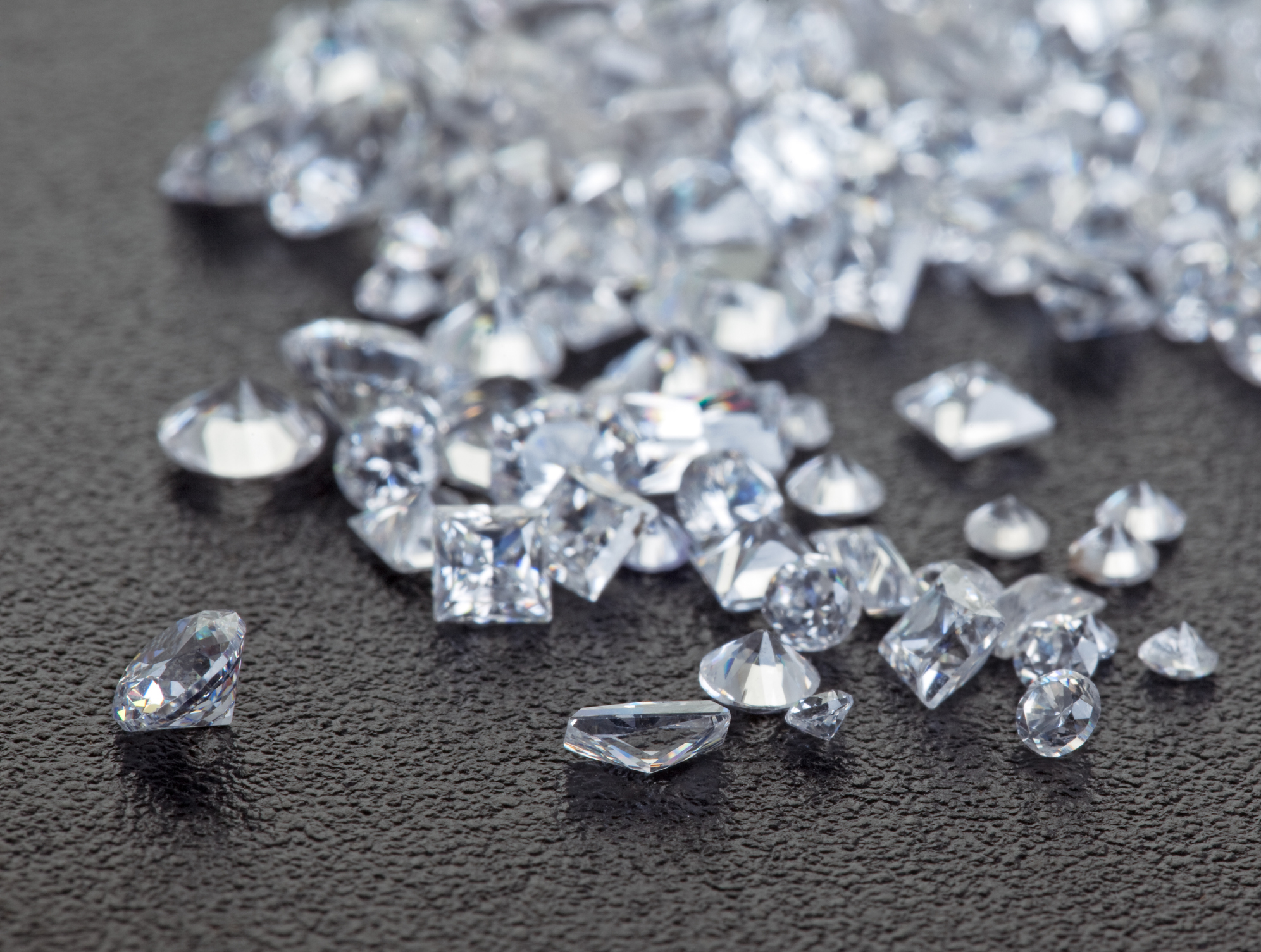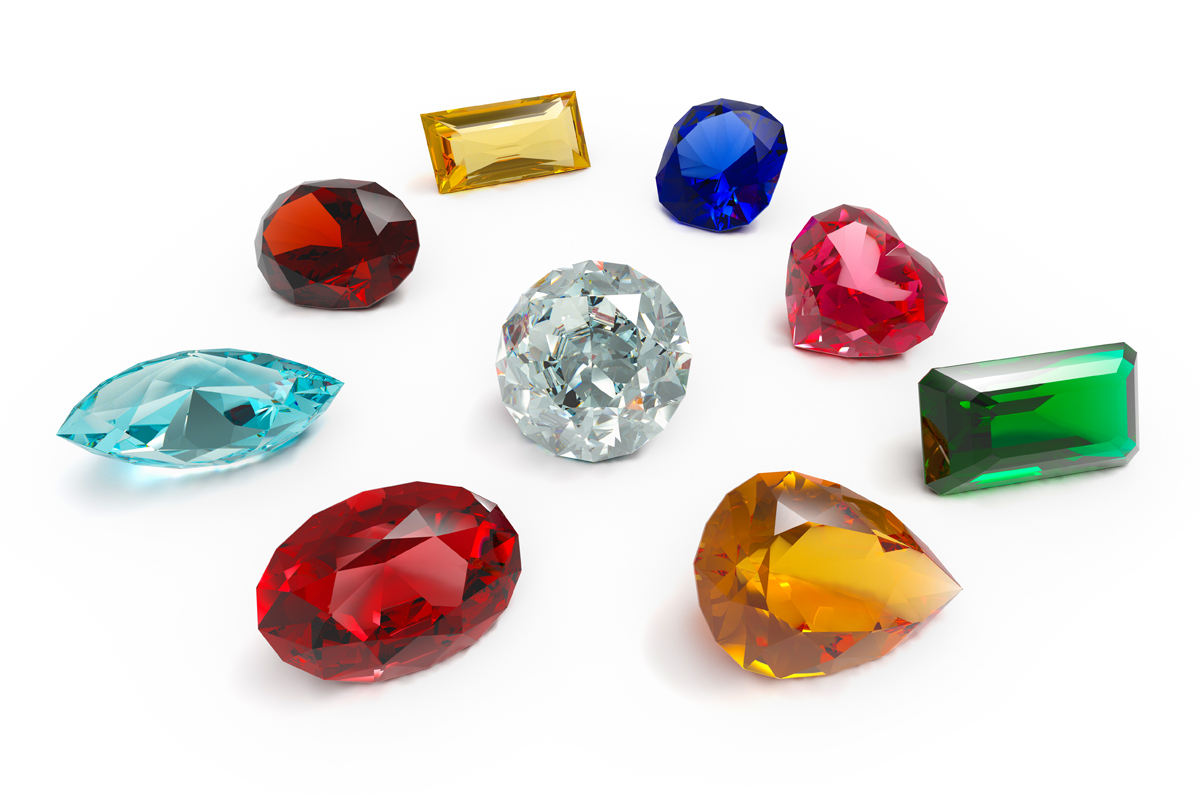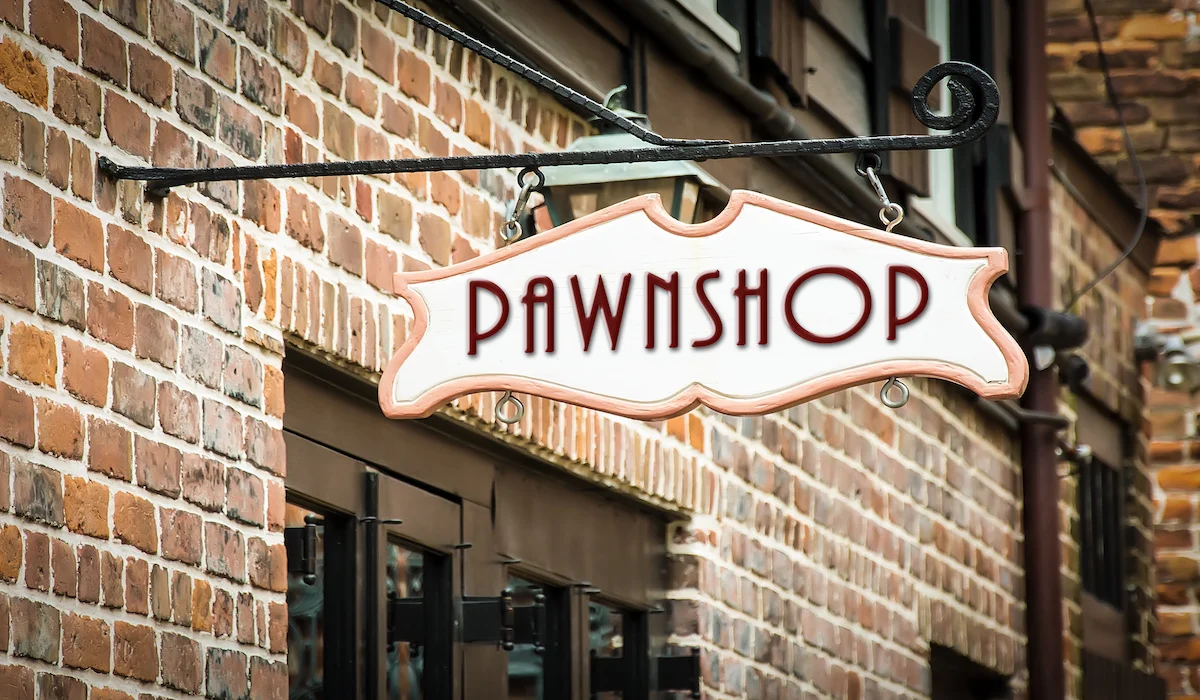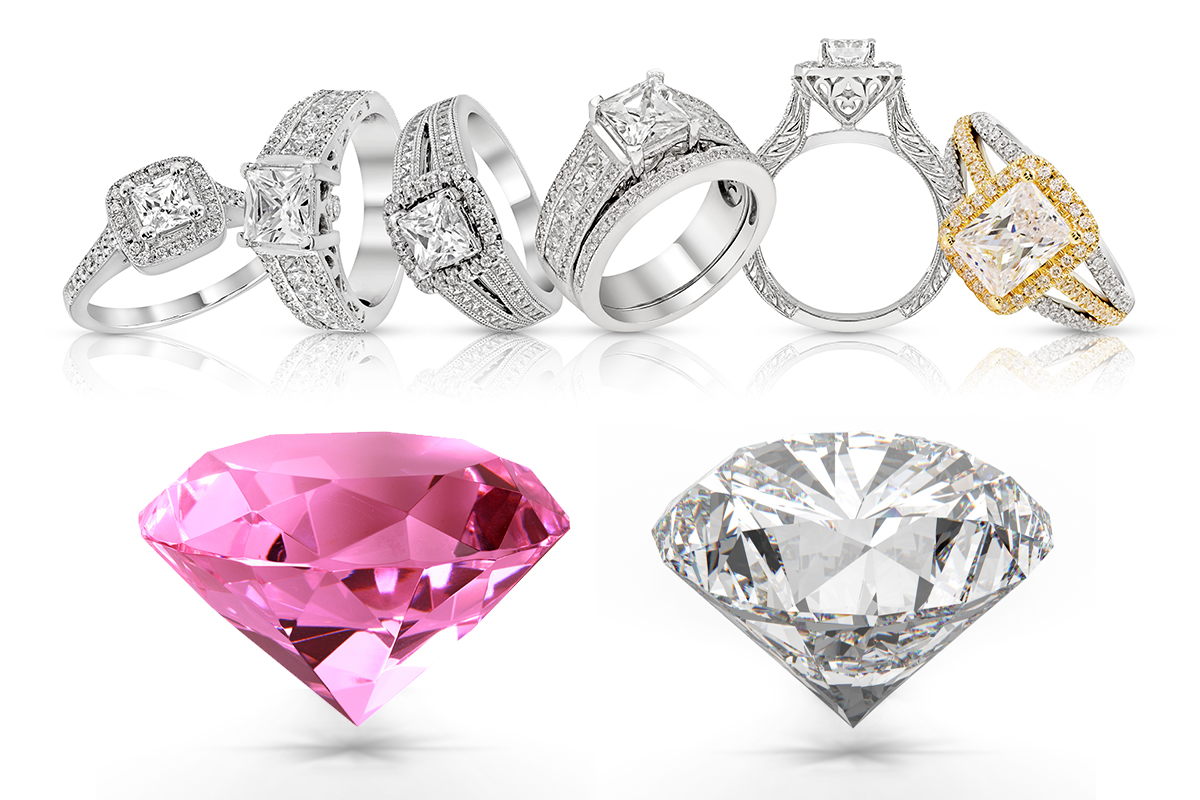
In the vibrant world of How To Sell Gemstones At A Pawn Shopstand out as a popular destination for selling these precious treasures. Their allure lies in the promise of quick cash and the potential to turn unused gemstonesinto immediate funds. However, navigating this terrain isn't without its challenges. Understanding the nuances of selling gemstones at pawn shops is crucial, as it involves more than merely presenting your gemstones for evaluation.
Entering a pawn shop with gemstones in hand requires more than just a transaction; it's an art form. Knowing the process inside out - from the initial assessment to the negotiation phase - is key to ensuring a fair and profitable exchange. Each gemstone comes with its unique set of considerations, such as cut, clarity, and market demand.
Understanding The Value Of Your Gemstones
Evaluating the worth of your gemstonescan be exciting, but navigating the nuances of color, clarity, cut, and size requires some knowledge. This guide will equip you with the tools to make an informed assessment before approaching a pawn shop.
The Four Cs Of Gemstone Valuation
- Color -The most impactful factor. Vibrant, evenly distributed color generally increases value. Rare colors can command even higher prices.
- Clarity -Fewer inclusions (flaws) increase value. Flawless stones are exceptionally valuable, while heavily included stones may be less desirable.
- Cut -A skilled cut maximizes brilliance and fire, enhancing the gem's beauty. Poor cuts can significantly decrease value.
- Carat -Larger stones are generally more valuable, but rarity and other factors can influence this. Smaller stones of exceptional quality can be more valuable than larger ones of lesser quality.
Additional Factors
- Gemstone type -Different gemstones have inherent values based on rarity, demand, and historical significance. Diamonds hold the highest value, while less common stones like alexandrite or paraiba tourmaline can be incredibly valuable.
- Origin -Certain geographic regions may produce particularly sought-after stones, affecting value.
- Treatments -Some gemstones undergo enhancements to improve color or clarity. While some treatments are acceptable, others can significantly decrease value.
Getting An Initial Appraisal
Before heading to a pawn shop, consider these options for a preliminary valuation:
- Online gemstone pricing guides -Websites like Gemval and RapNet offer price ranges based on the Four Cs and current market trends.
- Jewelry stores -Some jewelers, especially those specializing in estate jewelry, may offer free or low-cost initial appraisals.
- Gemological labs -Professional gemological labs like GIA or AGS provide detailed reports on a gemstone's characteristics and value, but these services can be expensive.
Important Tips
- Be realistic -Don't expect pawn shops to offer top dollar. Their primary goal is to buy at a low price and resell for a profit.
- Clean your gemstones -A clean stone showcases its beauty better, potentially increasing perceived value.
- Gather any documentation -Certificates of authenticity or previous appraisals can strengthen your case for a higher price.
- Get multiple quotes -Compare offers from different pawn shops to ensure you're getting the best deal.
Researching Pawn Shops
Pawn shopscan be a convenient option for selling gemstones, but finding a trustworthy one is crucial. Here's how to do your research and choose wisely:
Licensing And Certifications
- Verify licensing -Always ensure the pawn shop is licensed to operate in your area. Ask to see their license or check online government databases.
- Gemstone expertise -Look for pawn shops with certified gemologists on staff or affiliations with gemological labs. This indicates their knowledge and ability to accurately assess your gemstones.
Background Checks And Reviews
- Online research -Start your search online. Look for pawn shops specializing in gemstones or jewelry. Read reviews on Google, Yelp, and other platforms. Be wary of shops with overwhelmingly negative reviews or few reviews altogether.
- Local inquiries -Ask friends, family, or local jewelers for recommendations on reputable pawn shops. Personal anecdotes can be valuable insights.
- Better Business Bureau (BBB) -Check the pawn shop's BBB rating and complaint history. A good BBB rating and prompt resolution of past complaints indicate a commitment to ethical business practices.
Shop Visits And Interviews
- First impressions -Visit the pawn shop in person. Observe the overall environment. Is it clean, well-organized, and professional?
- Ask questions -Talk to the staff about their experience with gemstones. Do they seem knowledgeable and confident? Inquire about their appraisal process and payment methods.
- Transparency and clarity -Ensure the shop provides clear information about their valuation criteria, fees, and loan terms. Beware of vague explanations or pressure tactics.
- Multiple quotes -Don't settle for the first offer. Get quotes from several pawn shops to compare prices and terms before making a decision.
Preparing Your Gemstones For Sale
Presenting your gemstones in their best light can significantly enhance their appeal and potential value. Here's how to prepare them for a successful sale:
Cleaning And Care
- Gemstone type specific -Research the appropriate cleaning methods for your specific gemstone. Some stones require gentle wiping with a soft cloth, while others may benefit from soaking in lukewarm water with mild dish soap. Avoid harsh chemicals or ultrasonic cleaners unless recommended by a gemologist.
- Polish for brilliance -Use a gemstone-safe polish to restore brilliance and remove minor surface scratches. Opt for professional polishing for heavily scratched or dull stones.
- Store safely -Wrap your gemstones individually in soft, clean cloths or store them in velvet-lined jewelry boxes to prevent scratches and damage.
Presentation Tips
- Highlight the beauty -Choose neutral backgrounds like white or black velvet to showcase the gemstone's color and clarity. Good lighting is key; natural light is ideal, but avoid direct sunlight.
- Organize for impact -If selling multiple stones, group them by type, color, or size for a visually appealing presentation.
- Professional photography -High-quality photographs showcasing the gemstones from different angles can significantly boost online appeal.
Documentation And Provenance
- Certificates -Gather any existing certificates of authenticity or gemological reports. These add credibility and value, especially for high-value stones.
- Provenance -Research the history of your gemstones, if possible. Ownership by famous individuals or historical significance can add a premium.
- Appraisals -Consider getting an appraisal from a reputable gemological lab or certified gemologist. This provides a professional evaluation of the stone's quality and market value.
Negotiation Strategies
Negotiating with pawnbrokers for your gemstonescan be an exhilarating dance where knowledge and strategy reign supreme. Here are some tactics to waltz away with a satisfying deal:
Know Your Worth
- Research is key -Before stepping into the shop, arm yourself with knowledge. Use online gemstone pricing guides, consult gemologists, and gather existing certificates to accurately understand your stone's market value.
- Set a minimum -Determine the lowest price you'll accept. Consider factors like market value, personal sentimental value, and potential repair costs. Remember, pawnbrokers aim for profit, so set your floor accordingly.
Opening Act
- Start high, aim fair -Don't undervalue your treasure. State your desired price confidently, factoring in your research and minimum target. Be prepared to justify your valuation with clarity and evidence.
- Leave wiggle room -Be open to negotiation, but don't give away your leverage too easily. Start slightly higher than your minimum and allow for counteroffers.
The Bargaining Ballet
- Active listening -Pay close attention to the pawnbroker's offer and justifications. Use their reasoning to your advantage, pointing out discrepancies between their valuation and your research.
- Highlight strengths -Focus on your gemstone's positive attributes – its size, clarity, color, cut, and any accompanying documentation. Showcase its beauty and potential value.
- Walk away power -Don't be afraid to politely walk away if the offer falls significantly below your minimum. This demonstrates your seriousness and willingness to seek better deals elsewhere.
Legal And Ethical Considerations
While the allure of gemstones can be captivating, their sale involves both legal and ethical considerations that demand your attention. Here's a guide to navigate this terrain with transparency and integrity:
Legal Aspects
1. Proof of Ownership
- Documentation -Gather any purchase receipts, certificates of authenticity, or inheritance documents to establish your rightful ownership.
- Gemstone identification -Consider obtaining a gemological report from a reputable lab, especially for valuable stones. This report serves as an independent verification of the gemstone's type, quality, and any treatments.
2. Local Regulations
- Pawn shop laws -Familiarize yourself with your local laws regarding pawn shop transactions. Some areas require specific disclosures or waiting periods before pawning or selling certain high-value items.
- Tax implications -Understand any potential tax liabilities associated with gemstone sales. Consult a tax advisor if necessary.
3. International Trade
Customs regulations -If selling gemstones across borders, research the customs regulations of both countries involved. Certain stones may require special permits or declarations.
Ethical Considerations
1. Disclosure of Enhancements
- Transparency is key -Disclose any treatments or enhancements your gemstones have undergone. This includes dyeing, heating, fracture filling, or clarity enhancements. Withholding such information can be considered fraudulent and damage your reputation.
- Documentation -If certificates or reports mention treatments, ensure you provide copies to potential buyers.
2. Fair Pricing And Valuation
- Accurate representation -Avoid misrepresenting the quality, origin, or value of your gemstones. Exaggerated claims can be misleading and unethical.
- Informed negotiations -Base your asking price on thorough research and market trends. Don't take advantage of a buyer's lack of knowledge.
3. Sustainable Sourcing
Conflict-free stones -If ethically conscious, inquire about the gemstone's origin and ensure it doesn't come from conflict zones or exploitative mining practices. Consider purchasing certified conflict-free stones.
By prioritizing legal compliance and ethical conduct, you can ensure your gemstone sale is a smooth, transparent, and rewarding experience for both you and the buyer. Remember, integrity is a precious gem, and its value shines brighter than any stone.
Alternatives To Pawn Shops
While pawn shops offer quick cash for your gemstones, consider these alternative avenues for potentially maximizing their value and finding the right buyer:
Online Platforms
- Pros -Wide reach, extensive buyer base, potential for higher prices, convenient and flexible.
- Cons -Competition is high, scams can occur, shipping and insurance costs, lengthy selling process.
- Platforms -eBay, Etsy, Gemval, specialized gemstone auction sites.
Jewelry Stores
- Pros -Expertise in valuation and marketing, potential for consignment arrangements, immediate payment in some cases.
- Cons -May offer lower prices than online markets, commission fees, limited reach compared to online platforms.
- Stores -Estate jewelers, independent jewelers specializing in gemstones.
Auction Houses
- Pros -Potential for exceptional prices for rare or valuable stones, expert handling and marketing.
- Cons -High commission fees, lengthy process, uncertainty of sale, no guarantee of minimum price.
- Houses -Sotheby's, Christie's, smaller regional auction houses specializing in gemstones.
Private Sales
- Pros -Potential for higher prices through direct negotiation, control over buyer selection.
- Cons -Finding qualified buyers can be challenging, security risks involved, payment verification issues.
- Platforms -Online classifieds, gemstone forums, personal networks.
Pawn Shops
- Pros -Quick and easy transaction, immediate cash in hand, no upfront fees.
- Cons -Significantly lower prices than other options, limited knowledge of gemstones, potential for unfair valuation.
Choosing The Right Path
Consider factors like:
- Gemstone value -Higher-value stones may benefit from online platforms or auctions.
- Urgency for cash -Pawn shops offer instant liquidity, while other options may take longer.
- Selling experience -Online platforms require more effort and marketing expertise.
- Risk tolerance -Private sales carry security risks, while pawn shops are secure but offer lower prices.
Research thoroughly, compare offers, and prioritize transparency and ethical practices regardless of the selling platform you choose.


